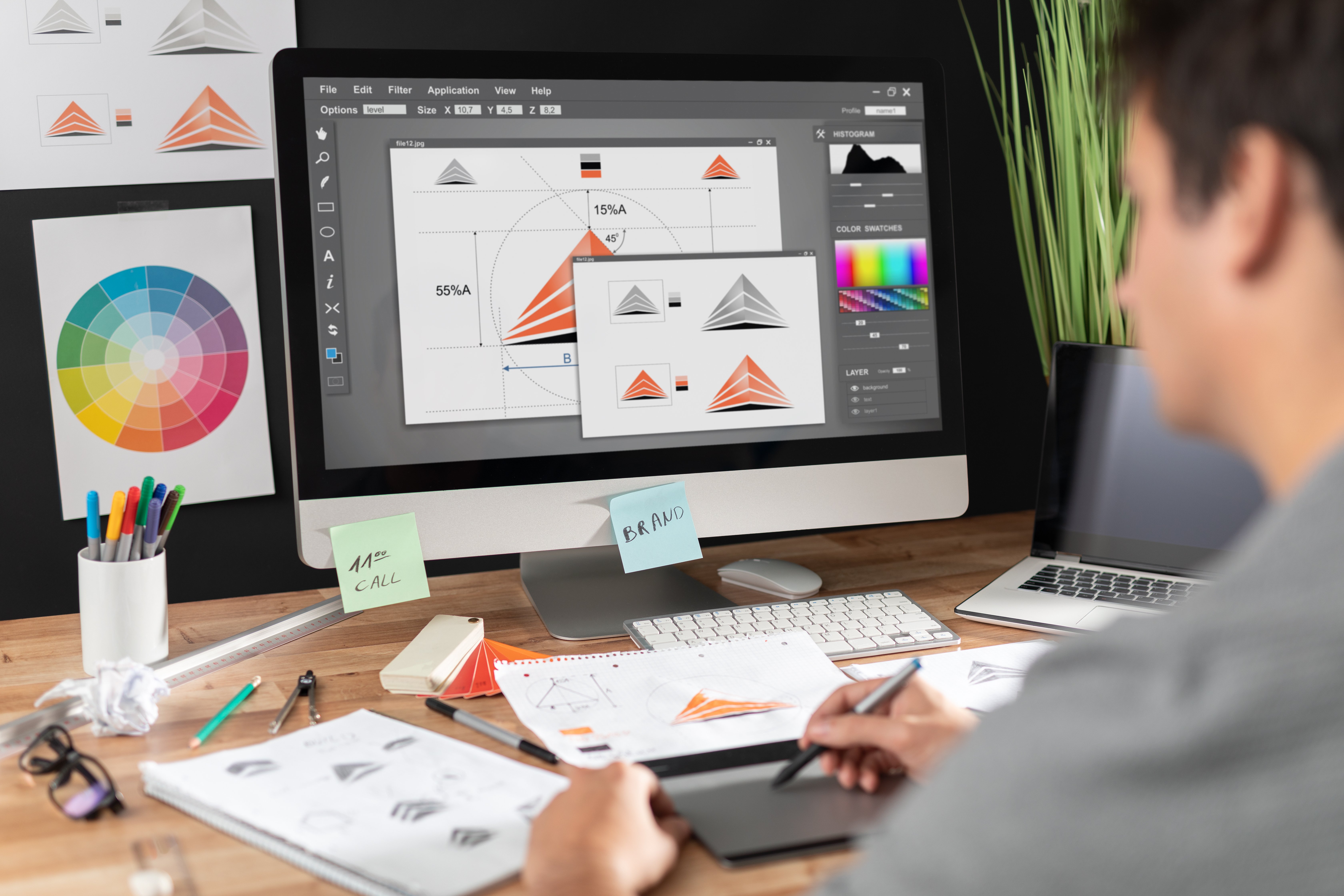5 best graphic design tools for creating mental health posters

In today’s fast-paced world, promoting mental health awareness and providing accessible resources is more critical than ever, especially with the constant influx of information and chaos online. Visually compelling posters play a vital role in cutting through the noise, conveying important messages, and encouraging individuals to prioritize their well-being. Whether you’re a mental health professional, an educational institution, or an individual advocate, creating impactful and empathetic graphic designs is essential for effective outreach. This article explores the best graphic design tools that empower you to create professional, sensitive, and engaging mental health posters tailored to resonate with a wide audience. These will help you spark conversations and foster a supportive environment. We’ll delve into platforms that offer ease of use, relevant templates, and customization options, enabling you to design visuals that truly make a difference in promoting mental well-being. Here are a few tools which are great for this purpose.
Canva
Canva is widely popular for its user-friendly interface and vast template library, making it an accessible option for creating mental health posters. The platform’s drag-and-drop functionality makes it incredibly easy for anyone, regardless of design experience, to create visually appealing posters. It offers a wide range of free templates, stock photos, and graphic elements, some of which are relevant to health and wellness themes, allowing individuals and smaller organizations to create awareness materials without a large budget.
However, when it comes to creating impactful and sensitive mental health posters, Canva has several drawbacks. Many of the higher-quality, more unique, or specialized mental health-specific templates, as well as premium stock images and graphics that convey empathy and professionalism without being generic, are often locked behind a paid Canva Pro subscription. This means free users might struggle to differentiate their designs. While Canva offers basic accessibility checks for PDFs, it’s not a comprehensive tool for ensuring full accessibility compliance which is crucial for reaching all segments of the mental health community, including those with visual impairments.
Furthermore, the sheer popularity of Canva means that many designs, especially in the free tier, can appear generic or similar to others, making it harder for a mental health organization to establish a unique and authoritative visual identity. The free version may also include Canva branding on downloaded designs, which can detract from the professional image required for sensitive topics like mental health. Lastly, while quick and easy, achieving highly nuanced or custom artistic expressions that might be desired for a specific mental health campaign can be challenging within Canva’s template-driven framework.
Visme
Visme is a powerful visual communication tool that offers a more professional suite of features than basic drag-and-drop editors, making it appealing for some organizations creating mental health posters. On the positive side, Visme offers a broader range of interactive elements and data visualization tools, which can be useful for creating engaging and informative mental health infographics or presentations. It provides more control over branding and a decent selection of professional templates, including some related to health and wellness, allowing for a more polished look for your mental health campaigns. In addition, it boasts good accessibility features like alt text for images, color contrast checkers, and reading order adjustments, which are crucial for ensuring your mental health messages are accessible to a diverse population, including those with visual impairments.
However, for many individuals or smaller organizations creating mental health posters, Visme’s cons can outweigh the pros. A major drawback is that many of its advanced features, including the ability to download designs without watermarks, access a full library of premium assets, and utilize comprehensive brand kits, are restricted to its paid plans. This can be a significant barrier for non-profits or community initiatives with limited financial resources. While it has good accessibility features, utilizing them effectively still requires a conscious effort from the user, and it’s not a magic bullet for creating fully WCAG-compliant designs without human oversight.
In addition, the learning curve for Visme can be slightly steeper than more intuitive platforms, which might deter individuals who are not experienced designers and need to create posters quickly. The sheer volume of templates and assets might be less geared towards the specific nuanced imagery often required for sensitive mental health topics compared to platforms that allow for more custom illustration or a wider range of empathetic photography. Lastly, while collaboration features exist, they are often more robust in higher-tier plans, potentially limiting seamless teamwork for mental health advocates or organizations.
VistaCreate
While VistaCreate offers a visually-driven and user-friendly platform that can assist in creating mental health posters for your initiatives, it comes with a few limitations that might affect the desired impact and professionalism, especially when dealing with sensitive topics. VistaCreate boasts a decent selection of templates, some of which are geared towards health and wellness, offering a good starting point for designing awareness materials. Its drag-and-drop interface is intuitive, making it accessible for individuals without extensive design experience to quickly put together posters. The platform also provides access to a library of stock photos and design elements, which can be useful for finding relevant visuals for mental health themes.
However, VistaCreate has several limitations when it comes to creating impactful and sensitive mental health posters. Many of the more unique, high-quality, or specialized mental health-specific templates, as well as premium stock imagery that conveys empathy and professionalism without being generic, are often reserved for paid plans. This can limit the distinctiveness of designs for free users. While it offers basic image editing, it lacks advanced features for nuanced photo manipulation or custom illustrations that might be necessary to convey complex emotional states or sensitive messages effectively.
Furthermore, the accessibility features, while present, may not be as robust or as easily implemented for full WCAG compliance as in more specialized design tools, which is crucial for ensuring mental health messages reach all segments of the population, including those with visual impairments. The free version may include VistaCreate branding on downloaded designs, potentially detracting from the professional image vital for sensitive topics like mental health awareness. Finally, while good for quick designs, creating a truly unique visual language that stands out and deeply resonates with the complexity of mental health issues might require more advanced customization options than what is readily available in VistaCreate’s template-driven environment.
Fotor
Fotor offers a combination of photo editing and graphic design tools, making it a versatile option for creating mental health posters. Its user-friendly interface allows individuals without extensive design experience to quickly create basic posters for mental health awareness. In addition, Fotor provides a selection of templates, some of which are suitable for general health themes, and offers basic photo editing tools to enhance imagery. Its AI image generator can also help create unique visuals based on text prompts, adding a creative dimension for mental health campaigns.
However,Fotor also has its fair share of limitations. Many of the more advanced design features, premium templates, and high-quality stock photos that convey empathy and professionalism, crucial for a sensitive subject like mental health, are often restricted to its paid plans. This means free users might struggle to produce truly unique or nuanced designs. Fotor’s free version often includes watermarks on downloaded designs, which can significantly detract from the professional and trustworthy image essential for mental health advocacy.
While it offers photo editing capabilities, it may lack the advanced features for intricate image manipulation or custom illustration that might be required to convey complex mental health concepts visually. Accessibility features, vital for mental health messages, may not be as robust or easily implemented as in platforms designed with accessibility compliance in mind. For a truly professional and widely accessible mental health campaign, the limitations of Fotor’s free version often necessitate an upgrade or exploration of more specialized tools.
PosterMyWall
PosterMyWall is an exceptionally strong graphic design tool for creating mental health posters, offering a wealth of features that are highly beneficial for individuals and organizations promoting mental well-being. The platform has a drag-and-drop interface that makes it incredibly accessible for anyone, regardless of design experience, to create professional-looking and sensitive mental health posters. PosterMyWall boasts an extensive library of customizable templates, with a significant number specifically categorized for Mental Health, Healthcare, and Non-profit themes. This vast selection provides excellent starting points for conveying diverse messages, from awareness campaigns to support group announcements relevant to your cause. It also offers a rich collection of high-quality stock photos and videos, many of which are suitable for sensitively portraying mental health topics, reducing the need for external asset sourcing.
Furthermore, its robust customization options allow for precise control over fonts, colors, and layouts, ensuring that your message aligns perfectly with your audience. Features like adding text animations or videos can make digital posters more engaging. PosterMyWall also provides various download options, including high-resolution images, suitable for both digital sharing and print. The inclusion of AI-powered tools like AI image generation and AI caption writer can further assist in creating unique visuals and compelling text for sensitive mental health messages. It also has a resize tool that lets you adjust your designs for various formats even beyond posters.
The primary limitation for some users might be the presence of a watermark on free downloads. To remove this watermark and access certain premium features, a paid subscription is required. However, this is quite affordable, especially when compared to most of the other options in the market. So, PosterMyWall’s extensive free features and user-friendly design environment make it an outstanding choice for most mental health poster creation needs.
In conclusion, there are various graphic design tools you can use for your mental health posters. Make sure you focus on the message and use the tool which lets you convey it in the ebay way possible.
